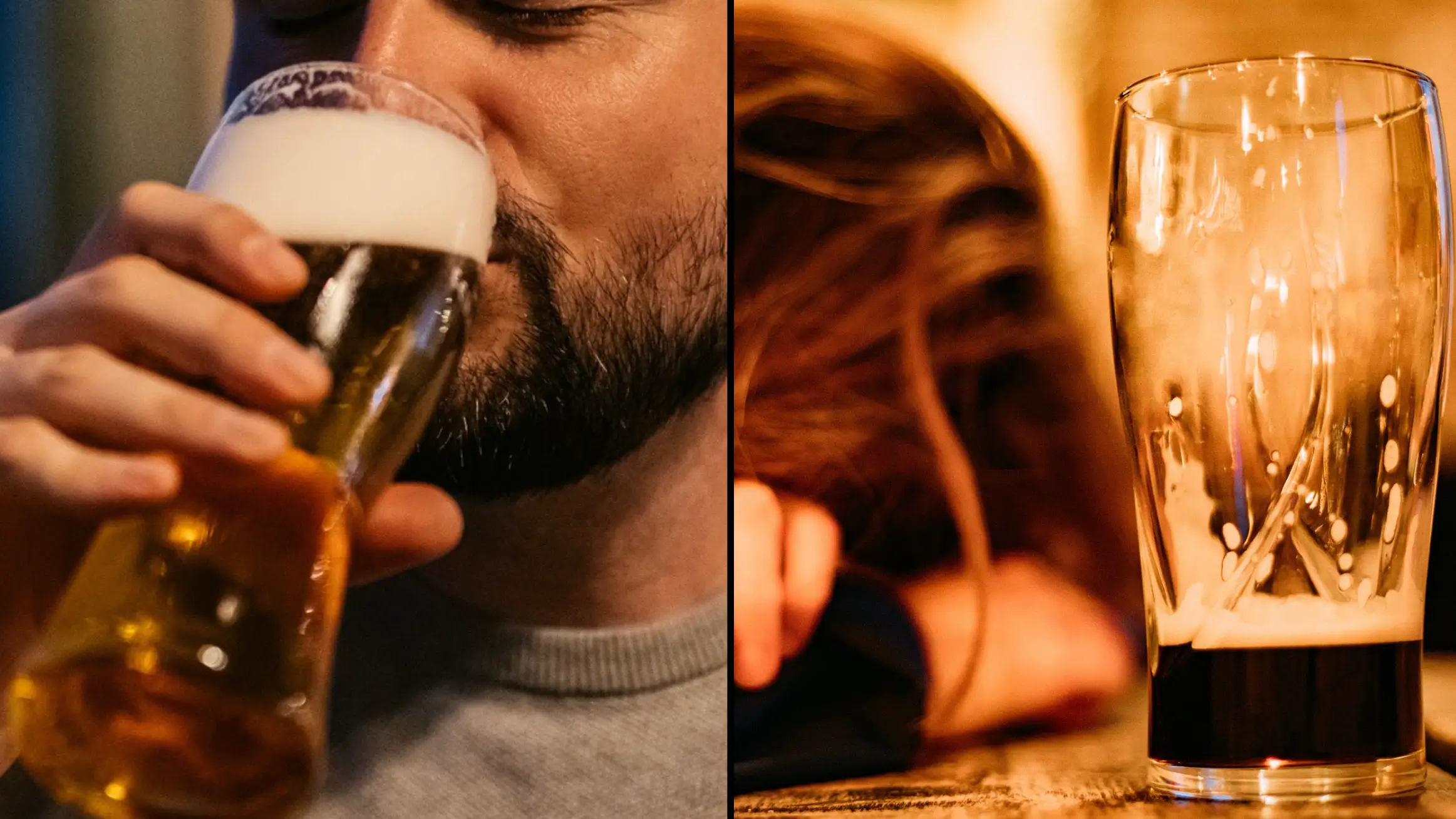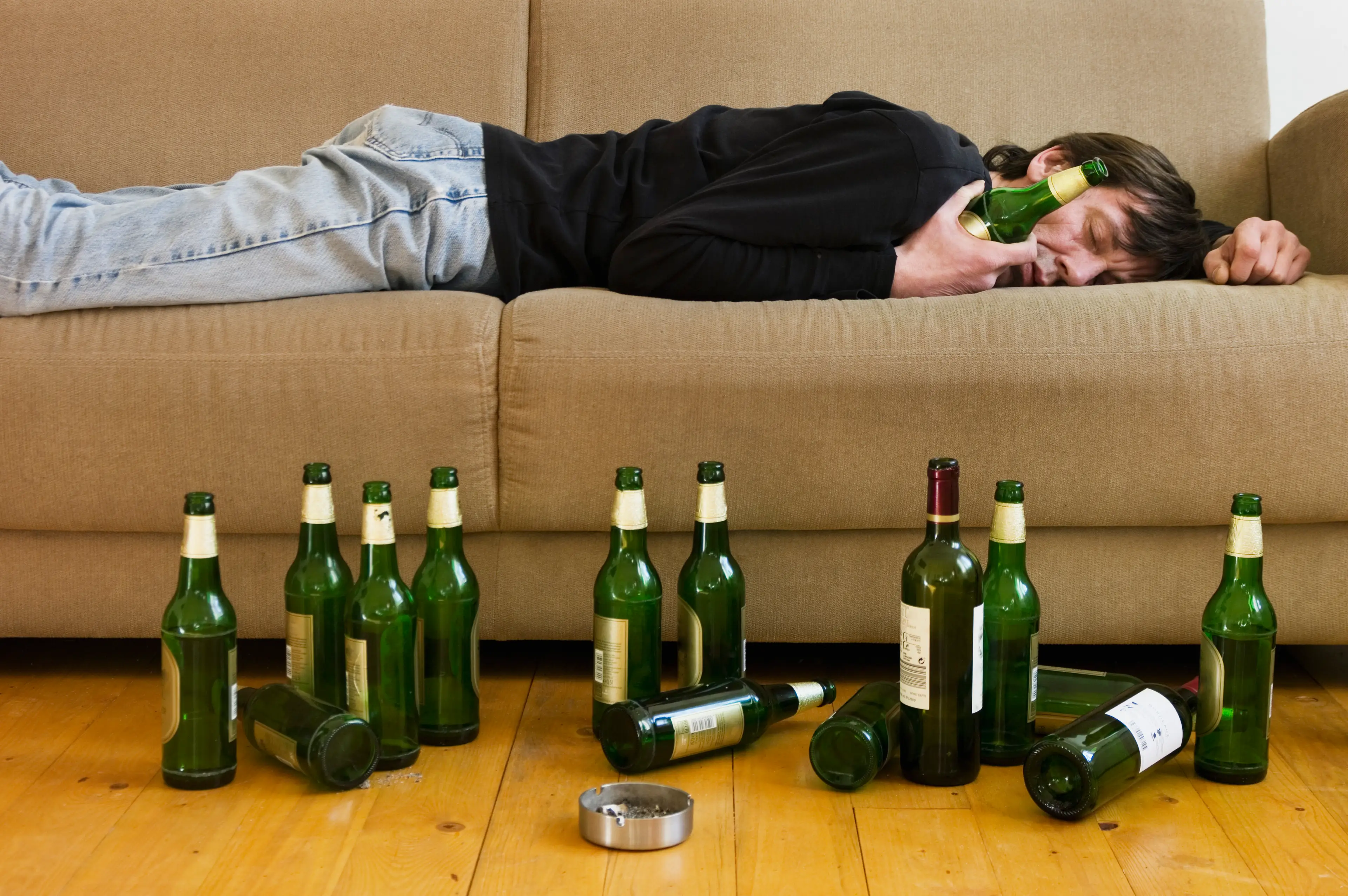
If you have ever been in the unenviable position of having to speak up to someone you know about their addiction, you will have a difficult conversation on your hands.
They may very well not see it your way, or even have come prepared for such a discussion, so it can be helpful to know what you might have to encounter.
Writing for Addictions.com, a group of experts laid out a total of 13 of the most common excuses which you might encounter when encouraging someone to seek treatment.
They said that alcohol addiction could 'damage every aspect of a person's life', and that those affected by it would often 'refuse to see the risks or consequences' while having 'a litany of reasons' why they didn't need help.
Advert

Everyone's doing it
Lots of people drink alcohol without having an addiction, but someone struggling with alcoholism may say that they're just drinking with everybody else.
A lot of social interactions revolve around drinking, but the experts warned that someone might pick social situations where drinking was always involved and avoid the times when it wasn't happening.
A doctor who gave up alcohol for over a year challenged people to think about whether it was really drinking or socialising that they were looking forward to.

I don't have a problem
The next one on the list, according to the experts, was straight up denial, which comes back to them saying someone could 'refuse to see the risks or consequences'.
Even if it'll catch up to them eventually, it's very possible they'll argue back that they don't have a problem.
It's not hurting anybody
Even if they do acknowledge there's an issue, the experts said they might focus on it not resulting in behaviours that openly hurt other people.
They said that many alcoholics would claim their drinking 'doesn't hurt anyone, or at least not anyone but themselves'.

Last time, I promise
Another common excuse was that they didn't need help if they were just about to kick the habit themselves anyway.
The experts said that 'at the moment, this claim can seem completely true' and be a genuine promise, but that alcoholism has 'created actual structural and chemical changes in their brain’s reward pathways' which will make this incredibly difficult to follow through with.
I've earned a few drinks
Speaking of the brain's reward pathways, the experts noted that many will come to see having a drink as a reward after a long day or a major achievement.
Therefore, they'll come up with the excuse that they're not drinking unreasonably or to excess, but will still drink a lot and tell themselves it's an earned treat.
The experts said that an alcoholic would decide they'd earned this treat 'nearly every day'.

I need to drink to do this
There may be some aspect of their life, whether professional or social, in which they believe they wouldn't be able to do without alcohol, and so will say they need to keep drinking.
I can't be that bad, someone else is worse
If someone can't think of a defence for themselves, they might try to redirect the criticism and point out someone in a worse situation.
The Addiction.com experts said that 'an alcoholic will always be able to find someone who appears to be worse off than themselves', and that 'there is no hierarchy when it comes to addiction', so this justification doesn't wash.

I don't have time
It's a busy life and that might be used as a way of deflecting attempts to get them to seek treatment.
Those in the know said that 'getting treatment should be an alcoholic's top priority', and that someone would likely have a lot more time if they were able to confront their addiction.
A man who gave up drinking for good said he found he had the time to take up his old hobbies and interests.
I can't afford treatment
Though they acknowledged that some treatment courses for alcoholism were expensive, the experts said help was available.
The NHS recommends that your first port of call is your GP as they can talk you through your problems and may be able to refer you for treatment.

I can't leave work
When discussing what treatment you can get, you'll be talked through a treatment plan which will take into account your work.
The health issues caused by alcohol addiction are also likely to be worse for you than trying to tough it out and stay in work.
I can stop whenever I want
According to the experts many alcoholics genuinely believe they could quit drinking whenever they wanted to, they just don't want to yet.
There are a number of alcoholics who quit drinking not out of the blue, but because they partake in an event such as Dry January, and start feeling the benefits.
The very nature of addiction makes it difficult to stop at any time.

The detox would be too much
If you've developed an addiction to alcohol and stop drinking, then it will have a significant impact on your body, that much is true.
In the short term, you would suffer some withdrawal symptoms and find it particularly difficult to stay away from alcohol, but the longer you stick at it, the more health benefits you are likely to find.
Better sleep, better mental health, and an improvement in other bodily functions can all help improve your mood until you're feeling better than you ever did while drinking.
If you or someone you know is struggling with alcohol addiction, support is available through the national alcohol helpline Drinkline, which you can call for free in complete confidence at 0300 123 1110 (weekdays 9am to 8pm, weekends 11am to 4pm).
Topics: Health, Alcohol, Mental Health